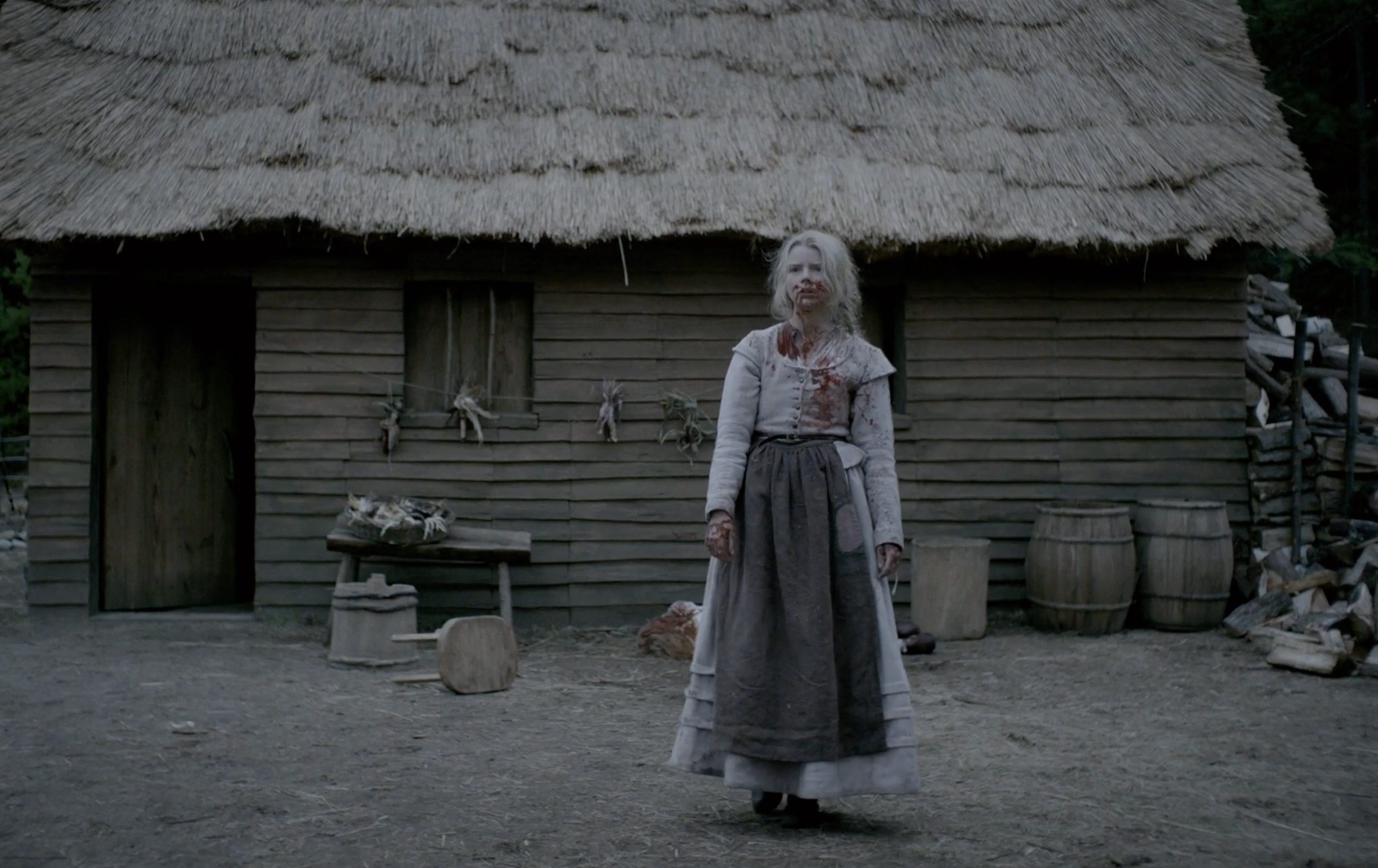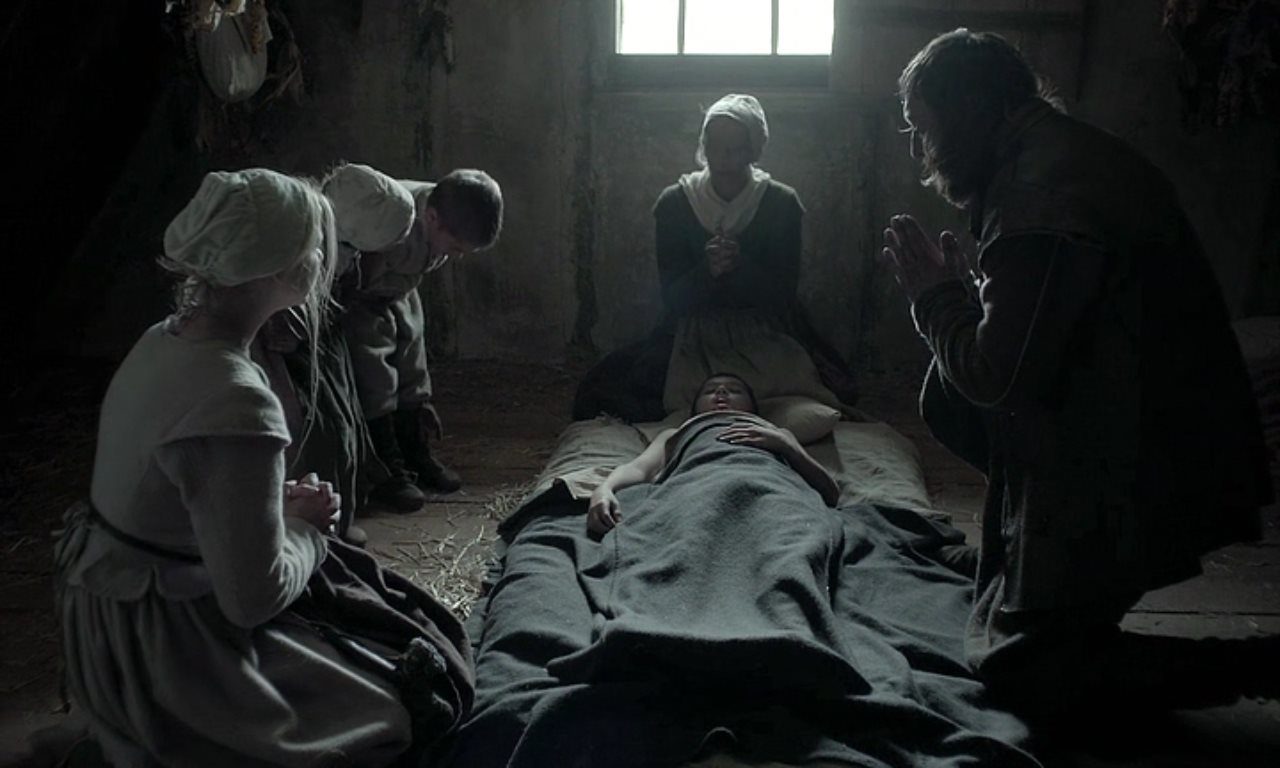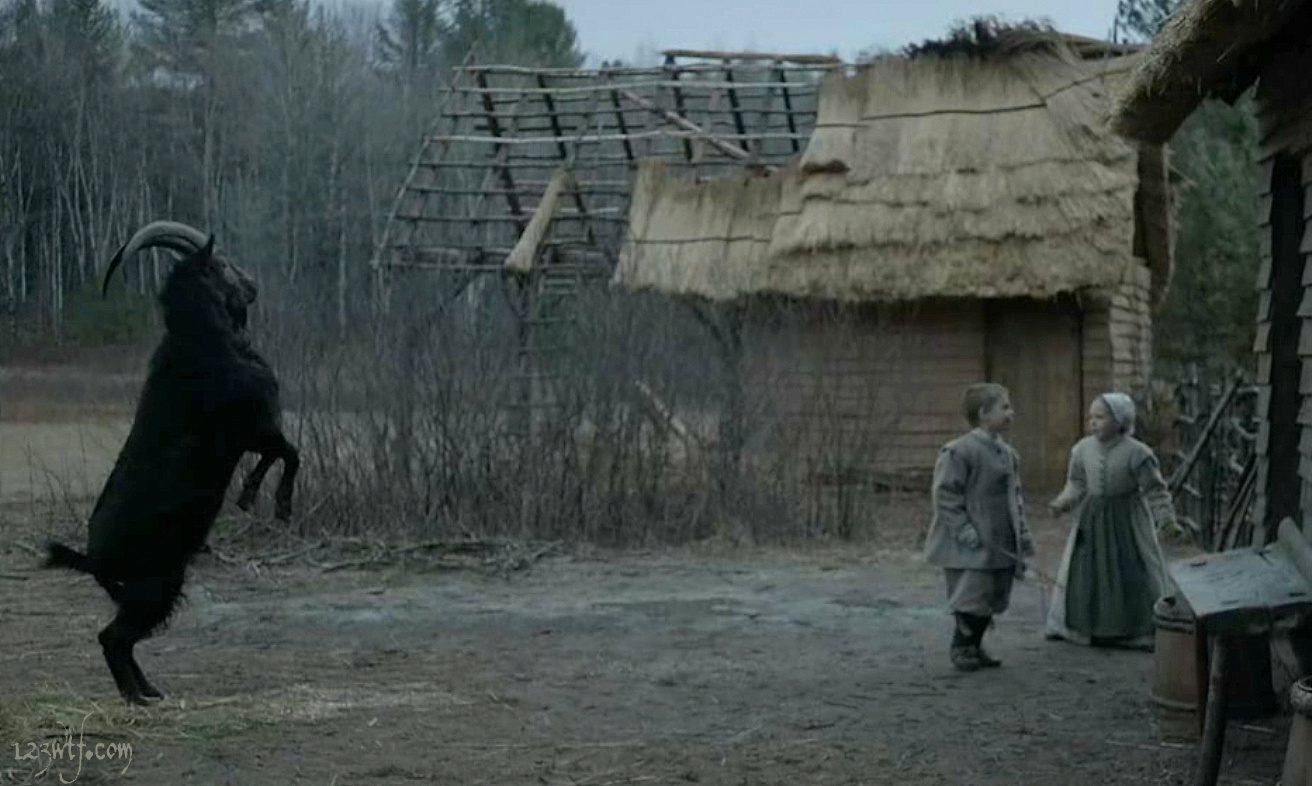“Wouldst thou like to live deliciously?”
The Witch subtitles itself “A New England Folktale,” and it presents itself as one too (the title has echoes of F.W. Murnau’s Nosferatu, which was subtitled A Symphony of Horror). As a folktale, it takes its lore incredibly seriously, and writer/director Robert Eggers (who is slated to direct a remake of Nosferatu, funnily enough) seems to believe in the mythos wholeheartedly. His film requires that we do the same. It’s an attitude used to reflect the Puritan ethos of the 1630s, when The Witch is set; the film’s dialogue was painstakingly created from consulting diaries and court records (which the film tells us in an unnecessary, boastful title card). It is one of the most original, confrontational horror films of the past few years. Hyperbole is tempting, as this was a darling on the festival circuit, but this was my second time watching the film, and it works even better the second time around.
The Witch begins with William (Ralph Ineson) and Katherine (Kate Dickie) being exiled from their plantation community – they’re just too hectoring and Puritanical, even by the standards of the day. They take their five children out of the town to start a farm near the woods. Eggers wants the woods to be terrifying, and they are: vast and impenetrable, a place where one could get lost and never be seen again. The film does not dwell on the implication of the woods; it wants to explore the reality. Thomasin (Anya Taylor-Joy, terrific) is playing peekaboo with the baby, Samuel, in a scene that was unfortunately spoiled by the trailers (the less you know going into The Witch, the better it plays, I think). Even when you know what’s going to happen, the tension is oppressive. The scene goes on longer than one might think – until it stops, suddenly. Samuel is gone. There is a rustling in the trees. Whatever took him moved fast enough to be gone by the time Thomasin uncovered her face. Eggers doesn’t leave the child’s fate dangling; there is an unsettling sequence that follows this, wherein we see an old crone, nude, hovering over Samuel with a knife. Later she uses a stick to make a poultice out of his remains. We are twenty minutes into The Witch.
A lot of horror films are episodic. This is not a knock against the genre, but it’s something that has to be done to link frightening scenes. The Witch is more plot-driven, as it explores the line between piety and zealotry. The backdrop is a succession of horrific events that can only be described as Satanic (which puts this film in conversation with Prince of Darkness, another movie from this month where the villain is the devil). Eggers isn’t interested in turning any of the family members into the villains, even when the tensions become unbearable: Catherine blames Thomasin for Samuel’s disappearance, the twins, Mercy and Jonas, won’t listen to Thomasin, and always in the distance is a goat named Black Phillip, one of my favorite recent horror villains, who with his inhuman jumping and cavorting is always an unnatural presence on the farm. His coat is the darkest thing in the movie.
The performances, across the board, are magnificent. Taylor-Joy shows incredible range, from fear at Samuel’s disappearance, to genuine menace when she grows tired of Mercy’s teasing and pretends that she herself is the witch. “‘Tis I what stole him,” she tells her sister. “I be the witch of the woods.” Taylor-Joy is so convincing here that you start to wonder if she is the witch. Ineson is revelatory as William. He’s not as adamantine as the opening scene suggests. He shows tenderness and vulnerability, and although his faith is so strict that he believes Samuel is in hell because he was never baptized, he genuinely loves his family. Ineson’s voice doesn’t hurt matters, either – he sounds like the very earth itself.
Eggers excels at horrific imagery. Thomasin milks blood from a goat’s teat; later she drops and egg, and inside is a dead fetal chicken. Her brother Caleb (Harvey Scrimshaw) goes into the forest to hunt, and finds the moss-covered cottage of the witch. She beckons him in and kisses him on the mouth. The entire movie is designed to unsettle, and it succeeds – everything here is so foreign, from the production and costume design, to the stilted yet entrancing dialogue. And all the while, Mark Koven’s eerie, discordant score (so reminiscent of Jonny Greenwood’s work on There Will Be Blood) underscores everything with a sense of inescapable, palpable dread.
When the tension gives over to action, Eggers truly goes for broke. It’s a breathless climax, like a scream sustained for twenty minutes. The twins go missing. William is gored by one of Black Phillip’s horns. Katherine attacks Thomasin, accusing her of witchcraft, certain that she is the cause of their misfortune. They grapple, and Thomasin gets hold of a knife and kills her mother. Where did the knife come from? I found myself asking.
But the film’s biggest gambit is the penultimate scene with Black Phillip. Thomasin enters the stable and commands him to speak, as the twins said he spoke to them. In a bold move, he does. His voice is soft and inviting, and as Thomasin speaks with him we get glimpses of a human form in the stable: a pair of boots, a glove on her shoulder. If you’re going to sour on The Witch, this is the point at which that will most likely happen (it worked wonderfully for me). Eggers shows real audacity in the film’s climax, when Thomasin signs her name in Satan’s book, and, naked, follows Black Phillip into the woods, where she comes upon a coven of witches, chanting before a bonfire. Later they fly into the air, and Thomasin joins them, a look of nearly orgasmic glee on her face.
The Witch is an uncommonly confident debut. It heralds the arrival of several major talents in Eggers, Taylor-Joy, and Ineson (who isn’t getting the work that he’s capable of, unfortunately). It’s rare that a filmmaker swings for the fences like this. It’s rarer that they reach them.
10/1: Dawn of the Dead
10/2: Drag Me to Hell
10/3: Pet Sematary
10/4: The Descent
10/5: Repo! The Genetic Opera
10/6: Desierto
10/7: The Blair Witch Project
10/8: Blair Witch
10/9: The Texas Chainsaw Massacre
10/10: A Nightmare on Elm Street (2010)
10/11: Prince of Darkness
10/12: 30 Days of Night
10/13: Friday the 13th (2009)
10/14: Slither
10/15: Tremors
10/16: Pandorum
10/17: It Follows
10/18: A Girl Walks Home Alone at Night
10/19: Poltergeist
10/20: Paranormal Activity
10/21: Creepshow
10/22: VHS
10/23: Nosferatu the Vampyre
10/24: An American Werewolf in London
10/25: The Witch
10/26: The Rocky Horror Picture Show
10/27: Cronos
10/28: The Hills Have Eyes
10/29: The Hills Have Eyes (2006)
10/30: Tucker and Dale vs. Evil
10/31: Halloween (2007)



